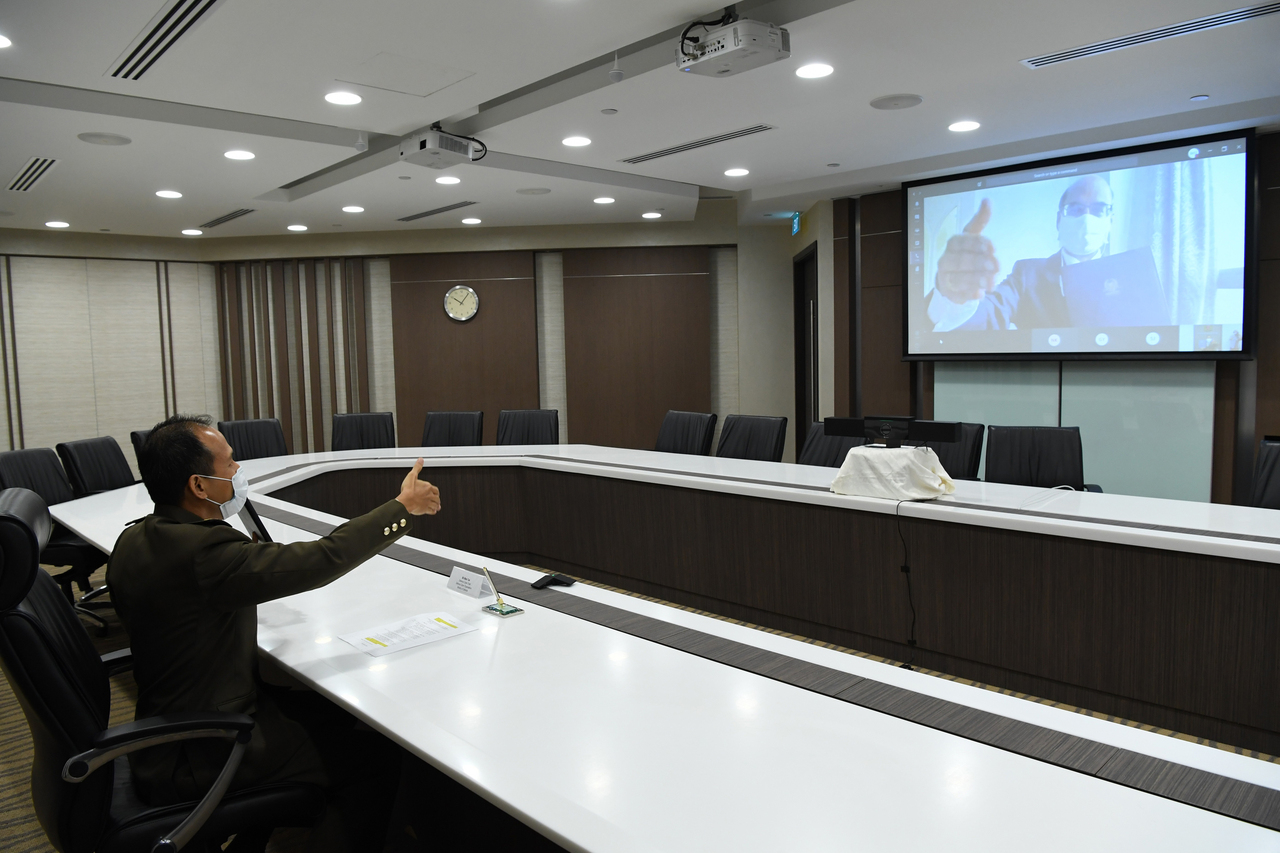More options for NSF cyber specialists as Mindef and NUS tie-up for new work-learn programme
Sign up now: Get ST's newsletters delivered to your inbox

Brigadier General Mark Tan, the SAF's Defence Cyber Chief, during a virtual meeting with Professor Mohan Kankanhalli, dean of the NUS School of Computing.
PHOTO: MINDEF
SINGAPORE - Full-time national servicemen (NSFs) under the work-learn Cyber NSF scheme will now be able to pursue their part-time tertiary studies at the National University of Singapore (NUS) after NUS and the Ministry of Defence (Mindef) inked an agreement on Friday (May 29).
This follows a similar tie-up between Mindef and the Singapore Institute of Technology (SIT) in 2018, when the Cyber NSF scheme was launched.
The scheme was the first to enable NSFs to attend classes while being deployed in an operational role over a three- or four-year period.
This has seen four intakes of around 170 cyber specialists to date, with the pioneer batch graduating from the 35-week Cyber Specialist Cadet Course last August.
The specialists take on advanced cyber roles for Mindef and the Singapore Armed Forces (SAF) such as in incident response and testing for security weaknesses in IT infrastructure and applications.
With the new agreement, NSFs will be able to earn academic credits by taking modules from the NUS School of Computing's Information Security programme that can be counted towards a cyber security degree, and can expect to graduate from university at the same time as their peers from the same national service cohort, Mindef said.
Among the applicants for the scheme's Cyber Specialist Award this year is Hwa Chong Institution (HCI) second-year junior college student Teo Kai Xiang, 18.
Kai Xiang's interest in cyber security was sparked off by an incident in Secondary 1, when the private server he was playing the popular game Minecraft on got hacked, undoing months of progress.
Since then, he has taken part in around 30 online cyber security competitions, and was part of the winning four-man HCI team in the local Cyberthon competition earlier this month, beating out 55 other teams from various junior colleges.

Kai Xiang said the Cyber NSF scheme represents an invaluable opportunity that very few other places can provide, as he can benefit simultaneously from the theoretical education in a university and the hands-on environment of the SAF.
"I don't have much time to go into deep theory now, but that's what I can go to NUS or SIT to learn," he said.
"I'll also be able to apply my practical skills in a very real environment to deal with active threats, (which is something) that exams or school cannot teach. Even competitions are a simulation that cannot be as realistic as dealing with such active threats."
Interested pre-enlistees can apply at this website by June 30.
Applicants are expected to possess baseline knowledge and skills in cyber security, Mindef said, and will be put through a series of tests to assess their aptitude for problem-solving and their skills in areas such as cryptography, security architecture and application security.
"Cyber security is a national imperative. We must recruit and train up a cyber force to defend and protect Singapore's interests in the cyber domain," said Brigadier-General Mark Tan, the SAF's Defence Cyber Chief.
"Key to this is identifying and nurturing the next generation of talents to hone their skills in cyber security, and deploying them on our digital borders to defend our networks and systems."


